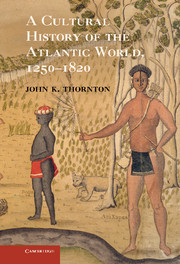Introduction
Published online by Cambridge University Press: 05 November 2012
Summary
This book grew out of my desire to see Americans, living on both continents, develop a new understanding of their past and their heritage, one that was multicentered, complex, and interactional. While my thinking was initially directed in particular toward North America, I also realized that other countries in the Americas, especially as I witnessed in my experience in the English-speaking Caribbean and Brazil, shared in their own ways variants of the collective memory I hoped to change. As Maurice Halbwachs originally envisioned it, our collective memory is our sense of ourselves as having a memory that extends beyond our personal recollections and includes the memory of the whole of society. Others, notably Pierre Nora, who have expanded the concept, have noted the role that national symbols, cherished historical events, monuments, and, for my purposes above all, the curriculum of schools have in shaping the collective memory.
I felt that our contemporary collective memory is often unidirectional, anchored in Europe and focused on a relatively few incidents and locations in the Americas. The locations and narratives vary from country to country; in Mexico more than many others, the indigenous heritage joins that of Europe, for example. My way to address, and hopefully to change, our collective memory is through Atlantic history. I see an Atlantic basin focus not as replacing the Western civilization approach to our heritage, but as augmenting and extending it. While Atlantic history as a subdiscipline has a fairly long and respectable lineage, its earliest manifestation was in fact simply to recognize that Europe and the Americas shared a common history. However, in the early 1990s, new conceptions of Atlantic history were emerging. The new Atlantic history deliberately decentered Europe and gave much more attention to non-European regions. Furthermore, Atlantic history’s new formulation has been struggling to move from using modern countries as a unit of analysis to look at regional or continental trends.
- Type
- Chapter
- Information
- Publisher: Cambridge University PressPrint publication year: 2012



